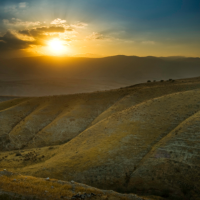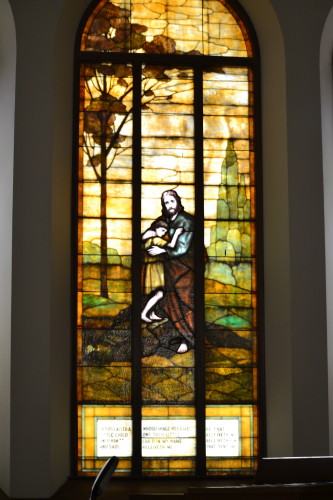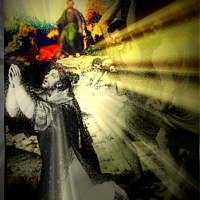This Mother’s Day message “Acts of Service Testify to Love” on Peter’s ministry from Acts 9 and 10 was first preached at Plymouth Congregational Church of Racine, WI on May 10, 2015
Click link to listen on YouTube:
Making the Theological Understandable
This Mother’s Day message “Acts of Service Testify to Love” on Peter’s ministry from Acts 9 and 10 was first preached at Plymouth Congregational Church of Racine, WI on May 10, 2015
Click link to listen on YouTube:
 One of the hardest tasks for home gardeners and Christians in the Church is this: Pruning.
One of the hardest tasks for home gardeners and Christians in the Church is this: Pruning.
There’s something that seems awfully cruel about it. Painful to witness and worse to perform because our sympathetic hearts want to preserve what little bits of life and hope remain, even if the reality is that we must prune. Equally important are the When and How to prune, but today we will cover the Why of pruning.
Why do we prune?
Our spiritual lives are the same way. We prune because we must. But will we?
 still do programs they’ve been doing since the dawn of time simply because they remember the glory days of bustling children’s programs with balloons and felt-boards, or the power of hundreds of people in their Sunday best singing hymns from hymnals to high-church organ music?
still do programs they’ve been doing since the dawn of time simply because they remember the glory days of bustling children’s programs with balloons and felt-boards, or the power of hundreds of people in their Sunday best singing hymns from hymnals to high-church organ music?What do the following Scriptures say about pruning in the Soul Garden?
 Ray Kinsela is the Iowa farmer in the movie Field of Dreams who plows under his corn crop to build a baseball field when he hears the voice saying “If you build it, he will come.” So he does it and goes out to meet the author Terence Mann who he’s supposed to take to a baseball game at Fenway Park. When Mann asks him, “Why go through with it?”, Kinsela says “It’s a long story. But it’s a good one.”
Ray Kinsela is the Iowa farmer in the movie Field of Dreams who plows under his corn crop to build a baseball field when he hears the voice saying “If you build it, he will come.” So he does it and goes out to meet the author Terence Mann who he’s supposed to take to a baseball game at Fenway Park. When Mann asks him, “Why go through with it?”, Kinsela says “It’s a long story. But it’s a good one.”
Today’s story is like that but even better because it’s not only a good story, it’s the best of stories.
It’s not only a good story, it’s a true story that has been told for almost 2000 years and is every bit as good and true today as it was when it first happened to the Apostle Paul whose Jewish name was Saul.
The Bible is filled with great stories: Creation, the Fall of Man, the Exodus, the birth of Jesus Christ, the empty tomb at Easter, and the Lamb of God at the end of time. And while all those are interesting and good stories, the story of the conversion of Saul is one we can put our fingers on. We can reach out and touch it. We find hope in this story that if the God who created the universe, who banished Adam and Eve, who rescued the Israelites out of Egypt, who came to us as God made flesh, who died and was resurrected and will come in Judgment someday didn’t just do these things for someone else. He did them in a very real way to you…and to me. If He could save someone as evil as Saul the “worst of sinners”, He can save me too.
Because it’s such a good story, I’m going to read it aloud. Not like the clergyman Mr. Collins in the book Pride and Prejudice who says, “I thought I might read to you for an hour or two. I have with me Fordyce’s sermons that speak eloquently on all matters moral. Are you familiar with Fordyce’s sermons?” It won’t take an hour or two. But reading this story is helpful because no one tells it better than Luke, the author of Acts, unless the one retelling it is Paul himself…which he’ll do two more times in the book of Acts. This story is that powerful that it gets better and better each time you hear it.
After I finish reading it, I’ll go back and point out a couple of things. Stephen has just been stoned to death, Saul approved. The church was scattered. Philip was scattered to Samaria and now Acts 9.
Acts 9:1 Meanwhile, Saul was still breathing out murderous threats against the Lord’s disciples. He went to the high priest 2 and asked him for letters to the synagogues in Damascus, so that if he found any there who belonged to the Way, whether men or women, he might take them as prisoners to Jerusalem. 3 As he neared Damascus on his journey, suddenly a light from heaven flashed around him.  4 He fell to the ground and heard a voice say to him, “Saul, Saul, why do you persecute me?” 5 “Who are you, Lord?” Saul asked. “I am Jesus, whom you are persecuting,” he replied. 6 “Now get up and go into the city, and you will be told what you must do.” 7 The men traveling with Saul stood there speechless; they heard the sound but did not see anyone. 8 Saul got up from the ground, but when he opened his eyes he could see nothing. So they led him by the hand into Damascus. 9 For three days he was blind, and did not eat or drink anything. 10 In Damascus there was a disciple named Ananias. The Lord called to him in a vision, “Ananias!” “Yes, Lord,” he answered. 11 The Lord told him, “Go to the house of Judas on Straight Street and ask for a man from Tarsus named Saul, for he is praying. 12 In a vision he has seen a man named Ananias come and place his hands on him to restore his sight.” 13 “Lord,” Ananias answered, “I have heard many reports about this man and all the harm he has done to your saints in Jerusalem. 14 And he has come here with authority from the chief priests to arrest all who call on your name.” 15 But the Lord said to Ananias, “Go! This man is my chosen instrument to carry my name before the Gentiles and their kings and before the people of Israel. 16 I will show him how much he must suffer for my name.” 17 Then Ananias went to the house and entered it. Placing his hands on Saul, he said, “Brother Saul, the Lord– Jesus, who appeared to you on the road as you were coming here– has sent me so that you may see again and be filled with the Holy Spirit.” 18 Immediately, something like scales fell from Saul’s eyes, and he could see again. He got up and was baptized, 19 and after taking some food, he regained his strength. Saul spent several days with the disciples in Damascus. 20 At once he began to preach in the synagogues that Jesus is the Son of God. 21 All those who heard him were astonished and asked, “Isn’t he the man who raised havoc in Jerusalem among those who call on this name? And hasn’t he come here to take them as prisoners to the chief priests?” 22 Yet Saul grew more and more powerful and baffled the Jews living in Damascus by proving that Jesus is the Christ. 23 After many days had gone by, the Jews conspired to kill him, 24 but Saul learned of their plan. Day and night they kept close watch on the city gates in order to kill him. 25 But his followers took him by night and lowered him in a basket through an opening in the wall. 26 When he came to Jerusalem, he tried to join the disciples, but they were all afraid of him, not believing that he really was a disciple. 27 But Barnabas took him and brought him to the apostles. He told them how Saul on his journey had seen the Lord and that the Lord had spoken to him, and how in Damascus he had preached fearlessly in the name of Jesus. 28 So Saul stayed with them and moved about freely in Jerusalem, speaking boldly in the name of the Lord. 29 He talked and debated with the Grecian Jews, but they tried to kill him. 30 When the brothers learned of this, they took him down to Caesarea and sent him off to Tarsus. 31 Then the church throughout Judea, Galilee and Samaria enjoyed a time of peace. It was strengthened; and encouraged by the Holy Spirit, it grew in numbers, living in the fear of the Lord.
4 He fell to the ground and heard a voice say to him, “Saul, Saul, why do you persecute me?” 5 “Who are you, Lord?” Saul asked. “I am Jesus, whom you are persecuting,” he replied. 6 “Now get up and go into the city, and you will be told what you must do.” 7 The men traveling with Saul stood there speechless; they heard the sound but did not see anyone. 8 Saul got up from the ground, but when he opened his eyes he could see nothing. So they led him by the hand into Damascus. 9 For three days he was blind, and did not eat or drink anything. 10 In Damascus there was a disciple named Ananias. The Lord called to him in a vision, “Ananias!” “Yes, Lord,” he answered. 11 The Lord told him, “Go to the house of Judas on Straight Street and ask for a man from Tarsus named Saul, for he is praying. 12 In a vision he has seen a man named Ananias come and place his hands on him to restore his sight.” 13 “Lord,” Ananias answered, “I have heard many reports about this man and all the harm he has done to your saints in Jerusalem. 14 And he has come here with authority from the chief priests to arrest all who call on your name.” 15 But the Lord said to Ananias, “Go! This man is my chosen instrument to carry my name before the Gentiles and their kings and before the people of Israel. 16 I will show him how much he must suffer for my name.” 17 Then Ananias went to the house and entered it. Placing his hands on Saul, he said, “Brother Saul, the Lord– Jesus, who appeared to you on the road as you were coming here– has sent me so that you may see again and be filled with the Holy Spirit.” 18 Immediately, something like scales fell from Saul’s eyes, and he could see again. He got up and was baptized, 19 and after taking some food, he regained his strength. Saul spent several days with the disciples in Damascus. 20 At once he began to preach in the synagogues that Jesus is the Son of God. 21 All those who heard him were astonished and asked, “Isn’t he the man who raised havoc in Jerusalem among those who call on this name? And hasn’t he come here to take them as prisoners to the chief priests?” 22 Yet Saul grew more and more powerful and baffled the Jews living in Damascus by proving that Jesus is the Christ. 23 After many days had gone by, the Jews conspired to kill him, 24 but Saul learned of their plan. Day and night they kept close watch on the city gates in order to kill him. 25 But his followers took him by night and lowered him in a basket through an opening in the wall. 26 When he came to Jerusalem, he tried to join the disciples, but they were all afraid of him, not believing that he really was a disciple. 27 But Barnabas took him and brought him to the apostles. He told them how Saul on his journey had seen the Lord and that the Lord had spoken to him, and how in Damascus he had preached fearlessly in the name of Jesus. 28 So Saul stayed with them and moved about freely in Jerusalem, speaking boldly in the name of the Lord. 29 He talked and debated with the Grecian Jews, but they tried to kill him. 30 When the brothers learned of this, they took him down to Caesarea and sent him off to Tarsus. 31 Then the church throughout Judea, Galilee and Samaria enjoyed a time of peace. It was strengthened; and encouraged by the Holy Spirit, it grew in numbers, living in the fear of the Lord.
This is the Word of the Lord. Thanks be to God!
It’s the best of stories. The evil villain Saul is out to kill Christians…breathing murderous threats when suddenly he sees the Risen Lord. This is the last of the Resurrection appearances of Christ. No one else has seen Jesus face to face since.
This is not just a vision. It’s not just a dream. This is not an imagination, a magic trick, or a drug-induced trip.
This is a confrontation of Saul by the post-Resurrection Jesus of Nazareth. Less than 30 words and it changed Saul’s life.
Saul sees Jesus and then Saul goes blind for 3 days to give him an indelible memory—to fix it in his brain forever—and something to think about theologically for 3 solid days in fasting and prayer.
So the first thing to notice is that Saul (who we’ve said was like ISIS before ISIS was ISIS) is out to kill Christians. Every single one he can find whether men or women. He was terrorizing homes and whole towns. He was a household name and it wasn’t good.
Reflection point #1: If Saul, the worst of sinners, can experience a turnaround, then so can I.
Saul has companions who see the flash of light and hear a sound like thunder but don’t see Jesus. Nevertheless, they see Saul fall to his knees and they give up their task of killing Christians. Instead, they take him by the hand and lead him to Damascus.
Do you think Paul was just silent this whole time? The Scriptures say he was blind, not speechless.
If you were on Wheel of Fortune and had the million dollar wedge and then, Pat gives it a final spin, the Wheel landed on the $3500 wedge and you get $4500 for every consonant, Vanna was busy because you got them all…and then won the game and went to the winner’s puzzle and you solved it and the million dollars was your prize revealed at the end…do you think you’d tell anyone? Sure you would. No one could shut you up!
I wonder what Saul told his companions as they were taking him by the hand to lead him to Damascus. I wonder what he might have said as he explained what he was doing on his knees and why he couldn’t see. Less than 30 words from the Risen Christ and it changed Saul’s life forever!
Reflection point #2: This event changed the course of Saul’s life and likely impacted his traveling companions too. When you or I meet Christ—not face to face, but in His Word and believe in His Name—we become changed people too.
Jesus says, “Why do you persecute ME?” When people do things against the Church, this whole theology of the Church as the Body of Christ, Jesus feels the pain. Why are you persecuting ME? Saul only asks “Who are you?” I am Jesus, whom you are persecuting.
Wow.
When Stephen was stoned, it was Jesus who felt every blow. When 21 the Coptic Christians were beheaded by ISIS, Jesus felt it all 21 times. When pastors or priests lie, commit adultery, embezzle, cheat, betray, molest Catholic altar boys, fall from grace and bring disrepute upon the Church and because of that, people leave or fall away from the faith, you know what? Jesus feels the pain, the sin, the abandonment, the betrayal, the grief, and the shame we experience as if it was His own.
Reflection point #3: Every single thing we do to the Church is felt by Jesus.
Ananias was no fool. He’d heard all about Saul. He didn’t want to be taken and put in prison, stoned to death for blasphemy, etc. When in a vision, the Lord speaks to the disciple Ananias, it’s no wonder that Ananias was unwilling at first. He was scared all the way down to his socks. But he obeyed anyway.
Reflection point #4: Fear God and obey Him.
Ananias’ obedience was only outdone by his generous and kind spirit. Brother Saul.
Can you imagine what healing words those two words must have been to Saul?
Brother Saul.
His past was behind him. He was part of the family now. Brother Saul.
Reflection point #5: In the Church we are all brothers and sisters. No one has a past so bad that Christ can’t forgive it. No one’s past is so bad that it prevents them from being part of the family in the present and for the future.
Saul’s eye sight is restored. He was a blind man healed to remind him of his spiritual blindness and how seeing the light of the Risen Lord healed him. Less than 30 words later, he was a changed man!
So as a changed man, he begins sharing Christ with others.
Reflection point #6: while the Church can forgive a past because Christ did, the world won’t be as forgiving.
The arch-persecutor becomes the arch-persecuted. It’s so bad that he’ll be a fugitive the rest of his life because everyone he used to hang with wants to kill him now. Hiding in a basket being dropped outside the city at night. Being sent away. He’s going to suffer a lot for the Name of Christ. Jesus even said so. And it’s precisely because Saul had been as bad as he was that the change witnessed as much as it did to the powerful forgiveness of Christ.
Reflection point #7: Everyone needs an Ananias and a Barnabas in their lives.
Brother Saul, so encouraging. And Barnabas takes Saul not just to the Church but to the apostles themselves. Barnabas put his neck on the line for Saul. Brave. Encouraging. A friend when Saul really needed one.
 And they welcomed him.
And they welcomed him.
They welcomed him.
And Jesus felt that too.
It must have reminded the apostles of what Jesus said to them Luke 9:48 Then [Jesus] said to [His disciples], “Whoever welcomes this little child in my name welcomes me; and whoever welcomes me welcomes the one who sent me. For he who is least among you all– he is the greatest.”
Saul, the worst of sinners, the most undeserving, the cruelest, meanest, most violent, most unworthy piece of human debris to walk the planet, who had persecuted Christ himself over and over and over again…is God’s chosen instrument to bring God’s Name to the Gentiles and to write so many letters to churches and to lay out the most articulate theology of the plan of salvation our Bibles contain.
The worst of sinners saved.
They welcomed him.
And what’s the result of all this?
Then the church throughout Judea, Galilee and Samaria enjoyed a time of peace. It was strengthened; and encouraged by the Holy Spirit, it grew in numbers, living in the fear of the Lord.”
The cycle continues: Pure Church, Powerful Church, Growing Church, Persecuted Church.
That’s what happens when we welcome the worst of sinners who has come to his senses and been saved. We are strengthened; we are encouraged; we grow; and we will experience times of peaceful purity between times of persecution.
It’s a great story. It’s one I can’t get enough of. It’s a perfect picture of redemption. Saul, Saul, Why do you persecute ME? Who are you Lord? I am Jesus whom you are persecuting.
What might Plymouth Church know today as changed people? What will we know regarding salvation of sinners? Or turnarounds? How about our ability to impact others? Will Jesus feel welcomed here? Will we fear God and obey Him? Will we welcome those whose pasts are bad? Will we stand firm though the world is arrayed against us? Will we be an encourager to someone? What does Jesus feel as His presence in our midst?
Let’s pray.
The Conversion of Saul is not only a good story, it’s one of the best. In less than 30 words from the Risen Lord, Saul is a changed man. Enjoy the audio version on YouTube of this message preached by Barbara Shafer on April 26, 2015.
A second important task of spring clean-up is removal of dead leaves and other debris. Holding onto what is dead interferes with new life!
So I carefully remove the dead leaves and other debris from around plants that died back over the winter (see before picture of yellow flag iris at right).
Why? Well, there are several reasons.
How good are you at identifying the dead things in your spiritual life?
When we become Christians, we become new creations, not just a slightly reformed and polished up old creation. We get rid of what is dead.
2 Corinthians 5:17 Therefore, if anyone is in Christ, he is a new creation; old things have passed away; behold, all things have become new.
We are born-again, not mildly tweaked.
Read these Scriptures and ponder what they say about dead things, former habits, and what kind of spring clean-up might be good for your Soul Garden.
Romans 6:1 What shall we say, then? Shall we go on sinning so that grace may increase? 2 By no means! We died to sin; how can we live in it any longer? 3 Or don’t you know that all of us who were baptized into Christ Jesus were baptized into his death? 4 We were therefore buried with him through baptism into death in order that, just as Christ was raised from the dead through the glory of the Father, we too may live a new life. 5 If we have been united with him like this in his death, we will certainly also be united with him in his resurrection. 6 For we know that our old self was crucified with him so that the body of sin might be done away with, that we should no longer be slaves to sin– 7 because anyone who has died has been freed from sin. 8 Now if we died with Christ, we believe that we will also live with him. 9 For we know that since Christ was raised from the dead, he cannot die again; death no longer has mastery over him. 10 The death he died, he died to sin once for all; but the life he lives, he lives to God. 11 In the same way, count yourselves dead to sin but alive to God in Christ Jesus. 12 Therefore do not let sin reign in your mortal body so that you obey its evil desires. 13 Do not offer the parts of your body to sin, as instruments of wickedness, but rather offer yourselves to God, as those who have been brought from death to life; and offer the parts of your body to him as instruments of righteousness.
Ephesians 2:1 As for you, you were dead in your transgressions and sins, 2 in which you used to live when you followed the ways of this world and of the ruler of the kingdom of the air, the spirit who is now at work in those who are disobedient. 3 All of us also lived among them at one time, gratifying the cravings of our sinful nature and following its desires and thoughts. Like the rest, we were by nature objects of wrath. 4 But because of his great love for us, God, who is rich in mercy, 5 made us alive with Christ even when we were dead in transgressions– it is by grace you have been saved.
Ephesians 4:22 You were taught, with regard to your former way of life, to put off your old self, which is being corrupted by its deceitful desires; 23 to be made new in the attitude of your minds; 24 and to put on the new self, created to be like God in true righteousness and holiness. 25 Therefore each of you must put off falsehood and speak truthfully to his neighbor, for we are all members of one body. 26 “In your anger do not sin”: Do not let the sun go down while you are still angry, 27 and do not give the devil a foothold. 28 He who has been stealing must steal no longer, but must work, doing something useful with his own hands, that he may have something to share with those in need. 29 Do not let any unwholesome talk come out of your mouths, but only what is helpful for building others up according to their needs, that it may benefit those who listen. 30 And do not grieve the Holy Spirit of God, with whom you were sealed for the day of redemption. 31 Get rid of all bitterness, rage and anger, brawling and slander, along with every form of malice. 32 Be kind and compassionate to one another, forgiving each other, just as in Christ God forgave you.
There’s always lots of clean-up of the yard to do in the spring.
Digging the early weeds to keep them from spreading
Removal of dead leaves and other debris
Pruning things before they leaf out too much
All of them have to do with death and new life.
If you stop and think about it, Christianity is all about the death of Christ that made new Life in Him possible. Our gardens provide us with a beautiful picture of what new life is like.
So, as part of my annual spring clean-up, I identify the weeds both in my lawn and in my garden. Getting them out before they spread or become hidden among the other plants will be particularly important.

 How good are you at identifying the weeds in your life?
How good are you at identifying the weeds in your life?
Some are easy to spot. Others, less so.
When you find them, do you just overlook them, live and let live, or do you do the tedious and nasty work of digging them out?
What might be some weeds in your Soul Garden? What do these Scripture say about weeds that might be present in your soul or in your church?
 Imagine one single dandelion, white with its little helicopters just waiting to take off with the nearest breeze. Lawns and neighbors quake at the sight.
Imagine one single dandelion, white with its little helicopters just waiting to take off with the nearest breeze. Lawns and neighbors quake at the sight.
Imagine one person with the flu heading into your grocery store and walking up and down every aisle sneezing and touching everything he or she can find. Almost enough to make you not want to shop there until it’s been thoroughly disinfected.
Imagine one firework soaring high into the sky and exploding into a chrysanthemum so big it fills the entire night and makes everyone go
Ooooh.”
Those are the kinds of things that happen when…one…is scattered.
It is powerful and it brings about a response!
Now, if you take one church and send it out in scattered form with all its individuals preaching the word wherever they went like our Scriptures said last week and you know what? It’s a powerful thing!
Today, we’re continuing our adventures called the Acts of the Holy Spirit and the Apostles by looking at…one…who was scattered.
This one wasn’t a top tier leader or one of the most powerful of the original disciples at first notice. But we should notice him more perhaps because he was a “Come and See” Disciple. Philip was the one chosen by Jesus and then John 1:45 Philip found Nathanael and told him, “We have found the one Moses wrote about in the Law, and about whom the prophets also wrote– Jesus of Nazareth, the son of Joseph.” Nathaniel responds in a negative fashion saying, John 1:46 “Nazareth! Can anything good come from there?” Nathanael asked. “Come and see,” said Philip.
Philip was going out…scattered…with the message “Come and see” long before he was scattered in persecution and went out as an evangelist with the simple message of Jesus. “Come and see,” Philip says.
The chapter of Acts that we’re looking at today has 3 basic vignettes, little scenes, like 3 acts in a play. All involve Philip going somewhere controversial with powerful results. I’d like to overview them first, kind of like it’s our trip itinerary and then I’ll go into detail.
Philip shares the gospel in all these controversial places.
Come and see Jesus, the One who breaks down all barriers of class and race and gender.
When is the last time you interacted with someone who not like yourself? Someone who doesn’t look like you…or think like you…or maybe someone whose socio-economic situation is not like yours?
It can be an uncomfortable experience, but that doesn’t make it wrong. It may be controversial, but one thing we all have in common is that we need Jesus.
Racine—at least from this outsider’s view—has pockets of different demographic categories. Each category seems to be an island unto itself with maybe a brave soul here or there that goes beyond the unspoken boundaries for sake of the Gospel. Maybe to hear it. Maybe to share it. I look at some of you and in my heart, I’m smiling. Because I know you’re here to come and see Jesus…even if on the surface you may be different than I am. I’m glad you’re here and I like that you’ve got a spirit that takes on a challenge.
 When Jesus calls us to be fishers of men, He doesn’t mean “keepers of the aquarium” who keep the pump and filter running and clean the algae and gunk off the walls and bottom of the tank.
When Jesus calls us to be fishers of men, He doesn’t mean “keepers of the aquarium” who keep the pump and filter running and clean the algae and gunk off the walls and bottom of the tank.
Fishers of men go out and bring them in…often with no more complicated a message than “Come and See Jesus.”
We need to become scattered and hopefully it will not require persecution to get us to do it.
Hopefully, it’s more like those churches that have signs in the parking lot facing the church. “Your mission field starts here.” Outside the church.
Given the amount of text as we pick up our pace in Acts, I won’t read the entire passage of Acts 8, but I would encourage you to do so during the week. In fact, one of the reasons why I list next week’s preaching passage in the bulletin is so that you can read ahead and learn even more by priming the pump, so to speak.
When we last left off with our apostles, Stephen was dead, having been stoned to death for his angel face and powerful argument. Saul who is the same guy as the Apostle Paul—back when he was the arch-enemy of the Church—gave his approval to the angel-faced man being stoned to death. And then this evil Saul went from door to door in his fanatical desire to destroy the Church. He punished. He imprisoned. He gave his approval and cast votes to have them killed. He was like ISIS in his obsession with killing Christians. He was like ISIS before ISIS was ISIS.
And so the Church scattered.
And they preached the Gospel wherever they went. Philip is a case in point. In Acts 8:4-6, Philip ends up in Samaria, which was a very controversial place to proclaim Christ. The Samaritans were viewed as low-lifes by faithful Jews and they’d go miles out of their way to avoid walking through Samaritan territory because they were viewed as “that bad!” When Jesus is talking with a 5x married Samaritan woman at a well in the middle of the day and turns her into an evangelist, Jesus raises more than a few eyebrows. Ill-repute, female, and Samaritan—that’s 3 strikes against her, but she goes back to her town and says, John 4:29 “Come, see a man who told me everything I ever did. Could this be the Christ?” The Scriptures don’t say specifically that Philip was among the disciples in that story of John 4, but I wonder if Philip had been among those going into town to buy food and returned to see Jesus doing something controversial and the woman with her Come and see the Christ ministry prepared the way.
So when Philip is scattered, he goes to Samaria. Good enough for Jesus. Good enough for Philip and so he goes and proclaims the Christ. People believe. They pay close attention. They even see him doing miraculous signs and when they see the healing going on, there is great joy in the city.
Scattered Philip. Controversial Samaria. Proclaim the Christ. Healing and Joy abound!
Sometimes I get discouraged. I share the Good News a lot. I talk about Jesus and God never has given me the chance to pray with someone to receive Christ. I’m kind of like #24.
 At one point a young preacher went into a jail to do ministry and there was a hardened criminal there. The young preacher shared the Gospel with him and when the criminal prayed to receive Christ as his Lord and Savior, he turned to the young man and said, “Don’t go getting a big head. You’re number 25.” There were 24 others before him who prepared the way ahead of him.
At one point a young preacher went into a jail to do ministry and there was a hardened criminal there. The young preacher shared the Gospel with him and when the criminal prayed to receive Christ as his Lord and Savior, he turned to the young man and said, “Don’t go getting a big head. You’re number 25.” There were 24 others before him who prepared the way ahead of him.
I’m chronically #22-24.
Oh how I wish I were 25…in so many ways!
But Philip is #25 a lot with his Come and See Ministry in Controversial Places.
If Samaria with its low-lifes is controversial Place #1, Place #2 is with spiritual evil. This is not something I would recommend for those who are new believers in Jesus or whose knowledge of the Scriptures is spotty at best. Spiritual evil is nothing to mess with.
Chalk me up to being a total kook, but I remember a time when we lived in MN I went to a lecture on Intelligent Design. It was actually a debate between someone who was a well-known atheist and a guy who was fairly well-known for articulating Intelligent Design. I walked in to the lecture hall and had a really weird feeling. Being in a place with that many God-haters was strange. I felt oppressed. Sorry to say the Intelligent Design guy came across as far less intelligent compared to the godless wonder. I went home and took a shower because it felt like evil got into my skin. When I went to sleep that night I woke up in the middle of the night gasping for air and screaming which of course freaked my husband out. I told him that I could feel in my nightmare that demons were shoving plastic wrappings down my throat to silence me and to suffocate me. I was unable to breathe which is why I screamed. Really weird. I know. To this day, I strongly believe that the demonic can be on or in people and things. And that we go wrong by either believing there’s a devil under every rock or by diminishing spiritual evil to mere fantasy.
Philip, as a longtime disciple of Jesus and very familiar with the Scriptures, encounters Simon the sorcerer in Samaria. Simon was a showman and people loved to see his magic. But when Philip comes in performing actual miracles and preaching Christ, Simon only sees competition. So he watches the crowds who used to follow Simon as the “Great Power” now following Philip preaching the Christ and he wants his crowds back. He feels like if he can only harness the power that Philip has by believing and being baptized, if only he can purchase it with money, then he’ll get his crowds back.
Philip is preaching and baptizing in controversial Samaria with powerful results and the disciples Peter and John come to verify what’s going on. Lots of good and evidence that the Great Commission from Jerusalem to Judea to Samaria is happening, but then there’s Simon.
It doesn’t take long for Philip and Peter and John to recognize a phony baloney plastic banana when they see one. What was the tell-tale sign with Simon? How can we tell he did not have a pure heart or motive?
Verse 19. Acts 8:19 [Simon] said, “Give me also this ability so that everyone on whom I lay my hands may receive the Holy Spirit.”
Wrong answer. You lose. Peter answers (v 20-23), “May your money perish with you, because you thought you could buy the gift of God with money! You have no part or share in this ministry, because your heart is not right before God. Repent of this wickedness and pray to the Lord. Perhaps he will forgive you for having such a thought in your heart. For I see that you are full of bitterness and captive to sin.”
Acts 8:24 Then Simon answered, “Pray to the Lord for me so that nothing you have said may happen to me.”
Sorry. It needs to be Simon says. Peter praying isn’t going to do it. Simon, YOU need to repent. You need to pray. But Peter knows he’s too far gone. And we remember this story of Simon even if we never heard it by the existence of the word “simony” in our dictionary which refers to trying to buy forgiveness, benefits or religious office with money. And now you know!
Controversial Samaria. Controversial Simon. And now Philip is minding his own business, when he gets instruction. The spiritual realm not only contains evil, but praise God: It also contains good!! An angel of the Lord tells Philip “Go south…” And who does Philip see there? An official of the Ethiopians, an important official in charge of the treasury of Queen Candace. He was sitting in his chariot reading the book of Isaiah. Isn’t that what you’d do if you were sitting in your chariot?
Acts 8:27 b This man had gone to Jerusalem to worship, 28 and on his way home was sitting in his chariot reading the book of Isaiah the prophet. 29 The Spirit told Philip, “Go to that chariot and stay near it.” 30 Then Philip ran up to the chariot and heard the man reading Isaiah the prophet. “Do you understand what you are reading?” Philip asked. 31 “How can I,” he said, “unless someone explains it to me?” So he invited Philip to come up and sit with him.”
This is a good point for a time out. They were not of the same race, of the same station in life, nor were they equally educated. The Ethiopian was the superior and privileged in every way…every way except one. Well, maybe two. We’re told the Ethiopian was a eunuch and Philip would go on to have daughters so maybe that’s a privilege Philip had. But the more important way in which the Ethiopian eunuch was missing something is that he didn’t know Jesus. And Philip did.
Notice that Philip didn’t make the opportunity happen.
He was just obedient to whatever God wanted him to do.
The angel says Go here and Philip goes. The Spirit says Go there and stay near the chariot and Philip goes. God doesn’t require that we make opportunities happen, pounding on the doors of total strangers and saying I’m here to tell you about Jesus. Slam! Door!
Where God calls, He has also prepared the way. The chariot was where it needed to be. The Ethiopian was reading about the Suffering Servant in Isaiah and was mulling over how it really didn’t compute. Philip had the key to understanding.
So Philip launches out of that and into a Come and See discussion and was clearly #25 and miraculously sees some water and at the suggestion of the Ethiopian, baptizes him.
And to conclude this bizarre story, Philip after coming up out of the water, Philip disappears. Poof! He vanishes. The Spirit of the Lord took Philip away only to have him show up at Azotus where he did more “Come and See” Ministry.
So what do I want you to take home from all this?
The world is filled with people who need to know Jesus. Some are in controversial places. Some are in our families and talking about Jesus with them is controversial and uncomfortable. Just remember that sometimes all we need to do is to say “Come and See” even when someone’s prejudice says, “Can anything good come out of Nazareth?” When we wonder if anything good can come out of going into Samaria? Or interacting with those practicing atheism and New Age religion? Or can anything good come out of talking to someone who is black or white or female or male or divorced or in prison or on drugs or homeless or in prostitution?
It’s remarkably simple: Come and See Jesus. And yes, come just as you are. Let’s pray.
 Philip, one of the original twelve disciples of Jesus, has a controversial “Come and See” ministry. He is scattered during the persecution recorded in Acts 8 and begins preaching in Samaria with powerful results.
Philip, one of the original twelve disciples of Jesus, has a controversial “Come and See” ministry. He is scattered during the persecution recorded in Acts 8 and begins preaching in Samaria with powerful results.
The message “Philip’s Come and See Ministry” was first preached at Plymouth Congregational Church of Racine, WI on April 19, 2015 by Barbara Shafer. Click this link to listen on YouTube.
Part of what I do in my life outside of Plymouth is to answer people’s Bible questions over email and through a web site called AllExperts. Oh, I get all kinds of questions. Dear Abby sorts of questions about relationships. Questions about what God thinks of homosexuality, tattoos, Christian hypocrisy, etc.
One of the more frequent questions I get is, “What is the unforgivable sin and did I just commit it?” Related to that one, I suppose, is “Can God ever forgive me for what I’ve done?”
Why would God ever forgive me knowing that I’ve done so much to slap Him in the face? And then there’s usually a parade of things that ought to make any Christian cringe and maybe that’s why some people write it out…just to get a reaction…especially with the public questions. But most, particularly the private ones, I think are really trying to find out if they’ve crossed some imaginary line between God being willing to save a wretch like me and Nope. No dice. Not even the blood of Christ can deal with that one. You crossed the line into unforgivable territory.
Let’s be clear: The Unforgivable Sin from Matthew 12:31-32 and Luke 12:10 ( “And everyone who will speak a word against the Son of Man, it shall be forgiven him; but he who blasphemes against the Holy Spirit, it shall not be forgiven him”) isn’t that easy to commit. It takes a thoroughly depraved heart to commit this. Lots of people say bad things about Jesus and He says those can be forgiven. But blasphemy against the Holy Spirit (to say that the work of God is credited to Satan) means that there is no sacrifice left. If Satan did the work of salvation, there is nothing left since only the blood of Jesus covers sin. You deny God’s proof of Jesus’ perfect sacrifice—the coming of the Holy Spirit—and you’ve denied your only way. You’ve closed your only door. That’s why that sin of attributing God’s work to Satan is “unforgivable”.
To the questioners on AllExperts who are really worried, I spend a lot of time talking about the sufficiency of Christ’s sacrifice and haul out my list of people whom God loved and saved and even used for ministry in a powerful way.
Then there’s Saul. Today’s Saul. In his own self-assessment, later on in life he writes, 1 Timothy 1:15 Here is a trustworthy saying that deserves full acceptance: Christ Jesus came into the world to save sinners– of whom I am the worst.
Saul. There are few people in Christendom who are held in higher Christian regard than the Apostle Paul (the Roman citizen with the Greek name Paul) whose Jewish given name was Saul, the same person who identifies himself as the worst of sinners.
Saul exemplifies for us what is the answer to “Can God ever forgive me for what I’ve done?” Saul, Paul, worst of sinners knows that the answer is YES! Praise God, Yes! God is supremely forgiving!
To give Saul some context, let’s read what the Scriptures say and then let’s apply it today with a few principles and responses. We left off with Stephen saying
 Acts 7:56 “Look,” he said, “I see heaven open and the Son of Man standing at the right hand of God.” 57 At this they covered their ears and, yelling at the top of their voices, they all rushed at him, 58 dragged him out of the city and began to stone him. Meanwhile, the witnesses laid their clothes at the feet of a young man named Saul. 59 While they were stoning him, Stephen prayed, “Lord Jesus, receive my spirit.” 60 Then he fell on his knees and cried out, “Lord, do not hold this sin against them.” When he had said this, he fell asleep.”
Acts 7:56 “Look,” he said, “I see heaven open and the Son of Man standing at the right hand of God.” 57 At this they covered their ears and, yelling at the top of their voices, they all rushed at him, 58 dragged him out of the city and began to stone him. Meanwhile, the witnesses laid their clothes at the feet of a young man named Saul. 59 While they were stoning him, Stephen prayed, “Lord Jesus, receive my spirit.” 60 Then he fell on his knees and cried out, “Lord, do not hold this sin against them.” When he had said this, he fell asleep.”
Today in our continuing adventure of the Acts of the Holy Spirit and the Apostles, Stephen is dead, stoned to death by the Sanhedrin while the false accusers laid their clothes at the feet of Saul. Luke, the author of the Gospel of Luke and the Book of Acts introduces the principal character of the remaining chapters. Luke introduces him as a killer and a persecutor. Because that’s who Saul was.
Acts 8:1 And Saul was there, giving approval to his death. On that day a great persecution broke out against the church at Jerusalem, and all except the apostles were scattered throughout Judea and Samaria. 2 Godly men buried Stephen and mourned deeply for him. 3 But Saul began to destroy the church. Going from house to house, he dragged off men and women and put them in prison. 4 Those who had been scattered preached the word wherever they went.
Remember how Jesus said that the disciples would be His witnesses in Jerusalem, Judea, Samaria, and to the ends of the earth? It’ starting.
Remember our old cycle: Pure Church, Powerful Church, Growing Church, Persecuted Church? It’s continuing. With Saul.
I’d like for you to view Saul, for a moment as being like Jihadi John, the terrorist who beheaded the journalist James Foley. Or like one of the terrorists who beheaded the Coptic Christians in Libya. Saul not only approved of Stephen’s death, but he began a systematic persecution of every Christian he could find. (Not at all unlike what we see with ISIS today!)
Could God ever save someone who had persecuted Christians and put them to death?
Yes. And then God could make him the most powerful evangelist to walk the planet, send him to the entire Gentile world, and have him write 13 epistles comprising nearly half of our New Testament and appearing as a major character in Acts and writings of the other apostles.
Could God ever save someone who had done a whole bunch of awful things? Yes. And furthermore, it’s why Jesus came.
Let’s take a look back at our first encounter with Saul and notice a few things. Principles and Responses
Acts 8:1 And Saul was there, giving approval to his death.
On that day a great persecution broke out against the church at Jerusalem,
and all except the apostles were scattered throughout Judea and Samaria.
2 Godly men buried Stephen and mourned deeply for him.
3 But Saul began to destroy the church. Going from house to house, he dragged off men and women and put them in prison.
4 Those who had been scattered preached the word wherever they went.
No one is beyond recovery until that final moment. Saul could tell you that.
As the Church was watching and fearing Saul, the great persecutor of the Church, they had no idea they were witnessing the formation of a brilliant theological scholar, a missionary even more zealous for Jesus than he had been against the Church, and a heart thoroughly broken because he knew how awful he was.
May we be quick to recognize our own sins and be thankful as Paul was when he wrote:
1 Timothy 1:12 I thank Christ Jesus our Lord, who has given me strength, that he considered me faithful, appointing me to his service. 13 Even though I was once a blasphemer and a persecutor and a violent man, I was shown mercy because I acted in ignorance and unbelief. 14 The grace of our Lord was poured out on me abundantly, along with the faith and love that are in Christ Jesus. 15 Here is a trustworthy saying that deserves full acceptance: Christ Jesus came into the world to save sinners– of whom I am the worst. 16 But for that very reason I was shown mercy so that in me, the worst of sinners, Christ Jesus might display his unlimited patience as an example for those who would believe on him and receive eternal life.
The Apostle Paul known as one of the most admired Christians and the foremost apologist, evangelist, and missionary for the Christian faith didn’t start out that way. Today, meet Saul (going by his circumcision Jewish name instead of by his Greek name.) Back then, he was the foremost persecutor of the Church. Get to know him in this way and understand better how completely transformed and broken he’d become on a road to Damascus when he meets the Risen Lord.
(This message was first preached by Barbara Shafer at Plymouth Congregational Church of Racine, WI on April 12, 2015.)